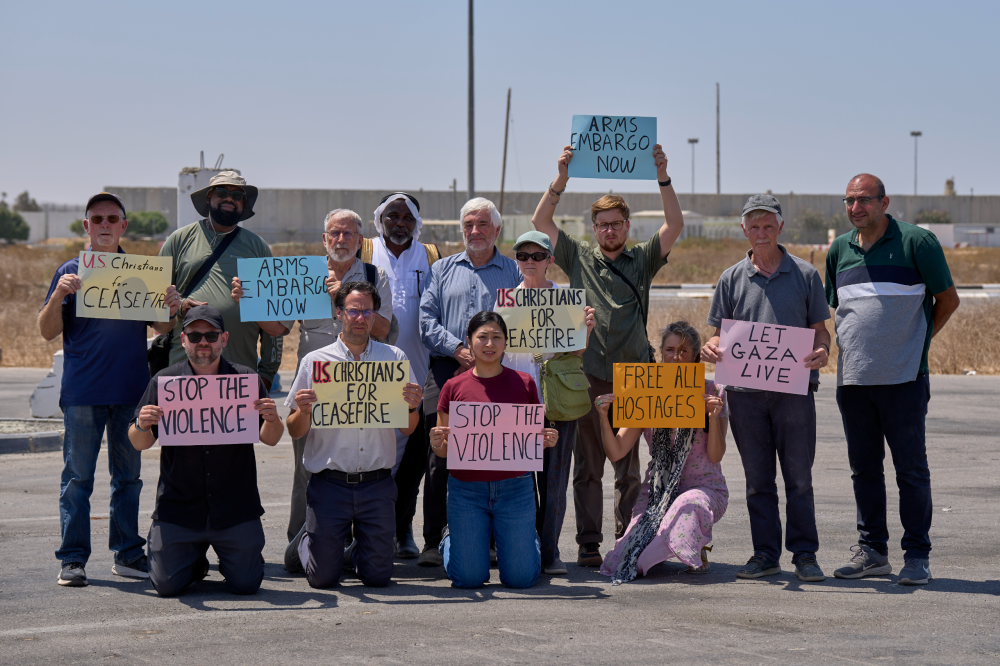Christian delegation makes pilgrimage for peace in the Holy Land

Larry Clark, a United Methodist pastor from Toledo, Ohio, (far left) participates in a prayer vigil at the Kerem Shalom corssing on the border between Israel and Gaza on August 18. (Photo by Paul Jeffrey, United Methodist News)
The Holy Land’s sacred sites overflow with tourists in normal times, but with an intractable war in Gaza and the looming threat of attacks by Hezbollah and Iran, airlines have canceled most flights into the region. Ancient churches normally filled with pilgrims are as empty as Jesus’ tomb. The streets of the old city of Jerusalem are deserted, merchant’s stalls shuttered.
Larry Clark, a retired United Methodist pastor in Toledo, Ohio, decided it was the perfect time to visit the Holy Land.
In response to an invitation by Palestinian Christian groups, he joined 11 other Christians from the United States and flew to Jordan. From there, the group journeyed overland to Palestine and Israel in order to call for a ceasefire in Gaza and an end to mistreatment of Palestinians in the West Bank and East Jerusalem.





